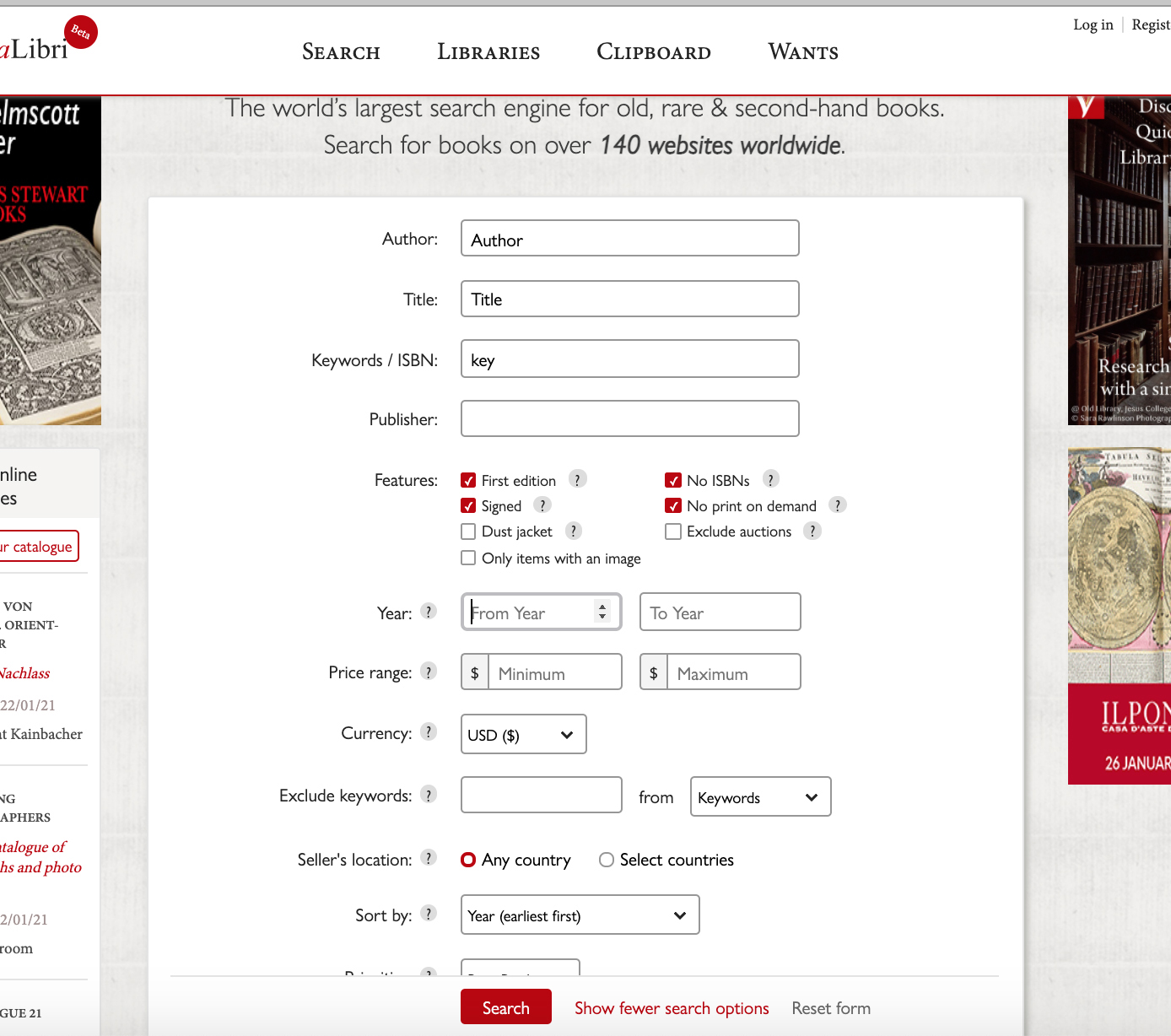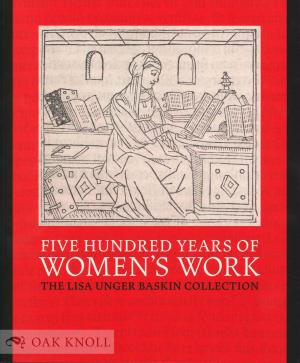
It has not gone unnoticed that this summer has marked three full years since the first virtual book fairs suddenly arrived on the bookselling scene and attempted to fill the vacuum created by COVID 19. At that time there was widespread concern within the book trade that the resulting universal closure of book fairs would bring in its wake the end of bookselling as we knew it. Much panic and moaning inevitably ensued.
In retrospect we can see that the COVID-related anxieties of June 2020 proved to be a bit inflated, at least with regard to antiquarian booksellers. There is, of course, no published statistical data on the subject. Looking at our own data, along with the anecdotal information we were receiving from others, tells me that the first year or two of lockdown was, in fact, profitable for many and manageable for most.
This pleasant surprise was due, I think, to the fact that while nearly everyone we knew had little or no trouble imagining the likely disastrous outcomes that would result from cancelling the fairs, few had yet anticipated the many good things that would occur when all the complications and constraints of physical book fairs were removed and alternative events arrived to take their place. It did not take them long to do so.
In the beginning the tactile and olfactory pleasures of handling old books were regularly cited as an essential feature of bibliophily. These are, of course, fine things and no one denies them, but the opportunities for appreciating them is restricted to those lucky collectors who are fortunate enough to find themselves regularly within travel distance of the locations where traditional book fairs regularly take place.
For booksellers who regularly exhibit at book fairs, geography also places constraints. To sell books you must travel. For the smaller fairs there is loading and unloading; packing and unpacking; petrol and, as often as not, a rented place to sleep. For the large international fairs convenient hotels are expensive while the merchandise will usually need to be shipped globally at an ever mounting cost.
In other words, physical book fairs are expensive, not to mention a lot of work. But in spite of it all, they were almost always popular, and even profitable – bearing in mind, of course, that many exhibitors are there mostly because of the opportunities to buy rather than sell.
Before COVID, all of this was taken for granted. Once the closures and quarantines had begun many collectors and dealers cautiously turned their attention to the internet where they soon began to notice that there were definite benefits to hunting for books online.
Librarians and archivists were especially responsive to the benefits of virtual fairs. They rarely have the time or budget for the kind of travel that regularly attending live book fairs requires. None of these restraints apply when the book fair is taking place right on your desk, or wherever it is that your other professional obligations may require you to be.
Of course, this applies to collectors as well. They have their own set of frustrations. Among these is the awareness that, while the retail customers are patiently waiting outside for the doors to open, the exhibitors inside have already been busy buying and trading for hours, if not days. I don’t fault them for this. The time required to unpack and prepare one’s booth makes it unavoidable. But it does give the insiders a tactical advantage over those who must wait patiently for the doors to open before they can begin.
There is much else that can be said on this topic. Shortly after the first wave of virtual book fairs went online in June of 2020 I published a blog post on this subject (https://blog.vialibri.net/did-you-go-virtual/). I was curious to hear from our users whether or not they were happy with this sudden innovation and so solicited their opinions about what had just taken place. I was also curious to hear what suggestions they might have to offer regarding what they would like to see when next era of virtuality has arrived.
I think that this time has now definitely come. I don’t have an official count showing how many virtual fairs are currently taking place, but what statistics I do see all show that attendance at individual digital fairs is significantly larger than at comparable live events. This is certainly the case in the U.S. and I expect that the trend will continue in other places as well.
We now have more than three years of experience with virtual fairs built on a variety of digital platforms.I cannot help being curious to know what an updated survey would tell us about how our users now feel about the current state of digital bookselling and the future direction they would like to see it take.
But I must confess that I am motivated here by more than mere curiosity. If, as I believe, online virtual events will be an increasingly crucial part of antiquarian bookselling in the future then this is something that viaLibri will want to participate in. And we have plans to do just that. As you may guess, this is an important motive behind soliciting input from our users today.
If you are like us and have your own ideas about what the next transformation of internet bookselling should look like then please share your thoughts with us here.
 Our third virtual showcase is now in preparation and scheduled to open on April 24. If you are a professional bookseller looking to reach an international audience of serious book lovers we think a virtual shelf in our next showcase will be the ideal place for you to display to the world your rarest and most exciting offerings. There are many reasons why we believe this will be the ideal online venue for you to showcase your choicest items for both new and familiar customers. They include:
Our third virtual showcase is now in preparation and scheduled to open on April 24. If you are a professional bookseller looking to reach an international audience of serious book lovers we think a virtual shelf in our next showcase will be the ideal place for you to display to the world your rarest and most exciting offerings. There are many reasons why we believe this will be the ideal online venue for you to showcase your choicest items for both new and familiar customers. They include:
 added to the count and began including books and ephemera from Getman’s Virtual Book Fairs – the oldest, largest and best known virtual book fair platform.
added to the count and began including books and ephemera from Getman’s Virtual Book Fairs – the oldest, largest and best known virtual book fair platform.


 The ILAB has organised a ZOOM webinar for members of the worldwide book trade to discuss the COVID-19 pandemic and its impact on their business now and in the future
The ILAB has organised a ZOOM webinar for members of the worldwide book trade to discuss the COVID-19 pandemic and its impact on their business now and in the future